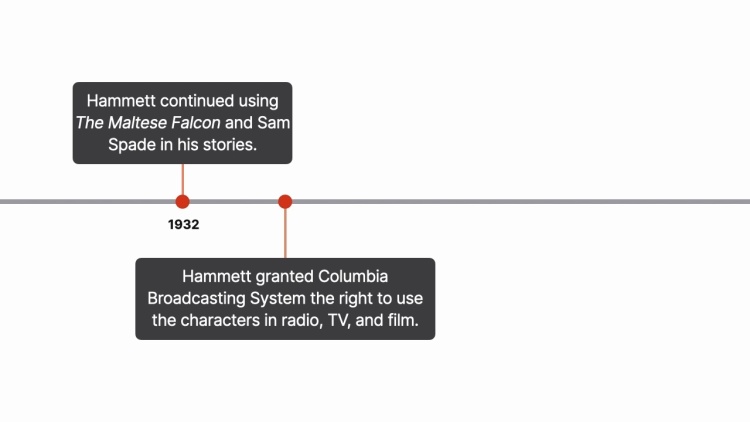Warner Brothers Pictures v. Columbia Broadcasting System
United States Court of Appeals for the Ninth Circuit
216 F.2d 945 (1954)
- Written by Matthew Celestin, JD
Facts
Dashiell Hammett (defendant) wrote a detective story called The Maltese Falcon and contracted Alfred A. Knopf, Inc. (Knopf) to publish the story as a book. Hammett and Knopf, as the copyright owners, subsequently entered an assignment agreement with Warner Brothers Pictures (Warner Brothers) (plaintiff), and Knopf separately entered another assignment agreement with Warner Brothers. In both agreements, Hammett and Knopf assigned Warner Brothers exclusive rights to use the writings in movies, radio, and television. The agreements explicitly included certain items, such as the Maltese Falcon title, in the rights being assigned, but did not specifically mention characters or their names. Hammett subsequently wrote and published other stories in which he used the Maltese Falcon characters and their names. Warner Brothers filed suit against Hammett, claiming that Hammett’s use of the Maltese Falcon characters and their names infringed Warner Brother’s exclusive rights to the Maltese Falcon writings pursuant to the assignment agreements. Hammett argued that, despite the assignment agreements, he retained the rights to use the characters and their names. The trial court declared that Hammett retained such rights and denied Warner Brothers’ claim. Warner Brothers appealed.
Rule of Law
Issue
Holding and Reasoning (Stephens, J.)
What to do next…
Here's why 911,000 law students have relied on our case briefs:
- Written by law professors and practitioners, not other law students. 47,100 briefs, keyed to 997 casebooks. Top-notch customer support.
- The right amount of information, includes the facts, issues, rule of law, holding and reasoning, and any concurrences and dissents.
- Access in your classes, works on your mobile and tablet. Massive library of related video lessons and high quality multiple-choice questions.
- Easy to use, uniform format for every case brief. Written in plain English, not in legalese. Our briefs summarize and simplify; they don’t just repeat the court’s language.





